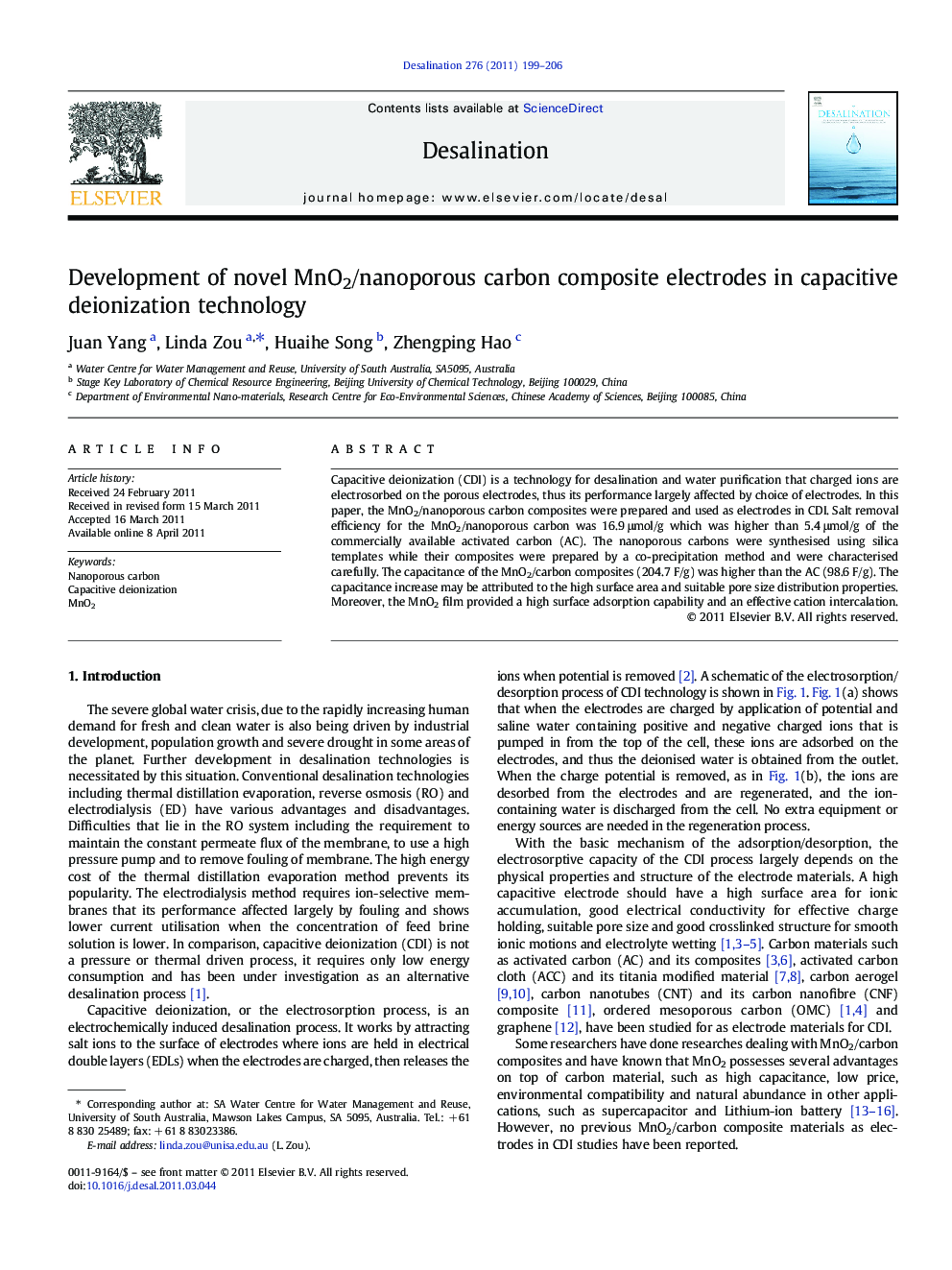| Article ID | Journal | Published Year | Pages | File Type |
|---|---|---|---|---|
| 624844 | Desalination | 2011 | 8 Pages |
Capacitive deionization (CDI) is a technology for desalination and water purification that charged ions are electrosorbed on the porous electrodes, thus its performance largely affected by choice of electrodes. In this paper, the MnO2/nanoporous carbon composites were prepared and used as electrodes in CDI. Salt removal efficiency for the MnO2/nanoporous carbon was 16.9 μmol/g which was higher than 5.4 μmol/g of the commercially available activated carbon (AC). The nanoporous carbons were synthesised using silica templates while their composites were prepared by a co-precipitation method and were characterised carefully. The capacitance of the MnO2/carbon composites (204.7 F/g) was higher than the AC (98.6 F/g). The capacitance increase may be attributed to the high surface area and suitable pore size distribution properties. Moreover, the MnO2 film provided a high surface adsorption capability and an effective cation intercalation.
Research Highlights► Preparation of novel MnO2/nanoporous carbon electrodes in capacitive deionization. ► MnO2/nanoporous carbon electrodes significantly enhanced desalting efficiency. ► Full regeneration of the MnO2/nanoporous carbon composites was achieved.
